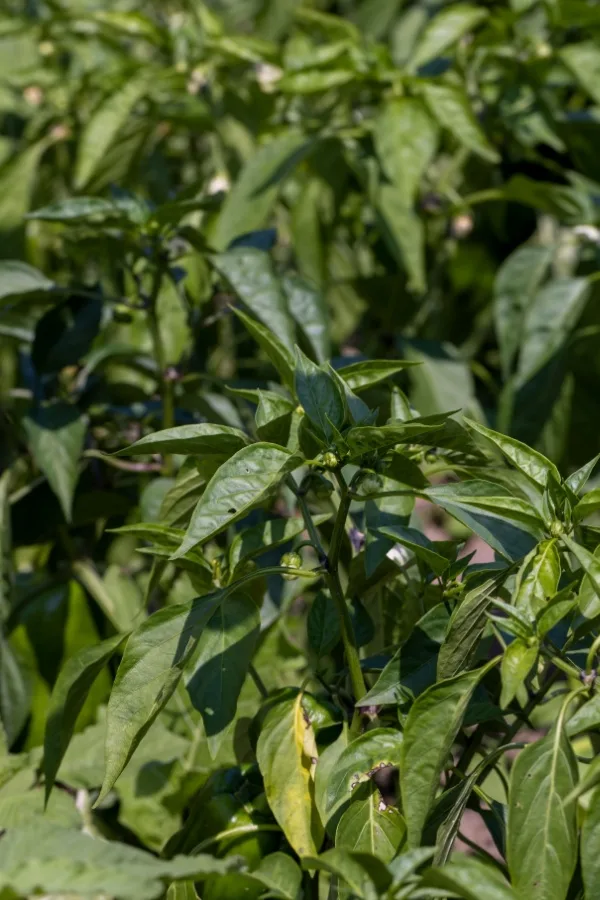Best Fertilizers for Peppers: Achieve Superior Results in Your Garden
Wiki Article
Organic Vs. Synthetic Fertilizers: Which Is Best for Supporting Healthy Pepper Plants?
In the realm of supporting healthy and balanced pepper plants, the option between artificial and organic fertilizers stands as a pivotal choice with far-reaching effects. While both options aim to provide necessary nutrients to support plant development, the subtleties of their effect on the soil, plant health, and the setting trigger an argument that echoes throughout the horticulture neighborhood. Understanding the unique advantages and potential risks of each fertilizer kind is crucial for pepper cultivators looking for to enhance their yields while preserving a lasting and eco-conscious approach.Advantages of Organic Fertilizers
Organic plant foods supply an environmentally-friendly and sustainable method to nourishing pepper plants, offering necessary nutrients without using artificial chemicals. These all-natural plant foods are obtained from organic resources such as compost, manure, bone dish, and algae, promoting dirt health and wellness and biodiversity. Unlike artificial fertilizers, natural options launch nutrients gradually, ensuring a well balanced and steady supply for pepper plants to prosper.One substantial benefit of natural plant foods is their capacity to boost soil structure and water retention. By boosting soil health and wellness, natural fertilizers advertise useful microbial task, which aids in nutrient uptake by pepper plants. Furthermore, organic plant foods reduce the risk of chemical run-off, securing water resources from air pollution and securing the atmosphere.
In addition, organic plant foods contribute to long-term soil fertility by advertising the growth of beneficial soil organisms. These organisms help damage down organic issue, releasing nutrients in a type that is quickly available to pepper plants. best fertilizers for peppers. By promoting a healthy soil ecosystem, natural plant foods sustain sustainable pepper growing techniques that profit both plants and the environment
Drawbacks of Synthetic Fertilizers
Synthetic fertilizers, in contrast to their organic counterparts, present different negative aspects when utilized to nourish pepper plants, affecting both plant health and ecological sustainability. One significant disadvantage of artificial plant foods is their propensity to leach nutrients from the soil quickly.Moreover, the overuse of synthetic fertilizers can contribute to water pollution. Excess plant foods not taken in by plants can remove right into water bodies, resulting in eutrophication, where algae blooms deplete oxygen degrees in the water, damaging water life. Synthetic plant foods are usually derived from non-renewable resources, such as fossil gas, contributing to carbon exhausts and ecological degradation during their manufacturing.
Nutrient Absorption Contrast
Effective nutrient absorption plays a crucial function in the overall health and wellness and growth of pepper plants. When comparing natural and synthetic plant foods in regards to nutrient absorption, natural fertilizers have the benefit of providing a more balanced and slow-release source of nutrients (best fertilizers for peppers). Organic fertilizers have a range of macro and micronutrients that are not only useful for the plants but additionally advertise healthy soil microbial activity, which assists in nutrient uptake. On the various other hand, synthetic fertilizers commonly offer a quick release of nutrients, which can lead to leaching and overflow, resulting in lower nutrient absorption prices by the plants.Moreover, natural fertilizers boost soil structure and water retention ability, allowing pepper plants to accessibility nutrients a lot more effectively. linked here This better dirt top quality assists in origin advancement, making it possible for much better nutrient absorption. Synthetic fertilizers, although at first improving plant development as a result of their high nutrient focus, may prevent long-lasting nutrient absorption by degrading dirt wellness over time.
Environmental Influence Factors To Consider

On the various other hand, synthetic fertilizers, although typically even more immediately available and concentrated to plants, can have harmful impacts on the atmosphere if not applied properly (best fertilizers for peppers). Their manufacturing needs high power inputs, resulting in greenhouse gas exhausts and adding to environment modification. Moreover, the overflow of excess artificial fertilizers can pollute water resources, bring about eutrophication and harming marine environments.
Finest Plant Food Practices for Peppers
When feeding pepper plants, optimizing nutrient uptake and lessening ecological influence are vital factors to consider. To achieve this, it is important to follow ideal plant food techniques tailored to the details demands of pepper plants. One critical technique is to perform a dirt examination prior to using any plant foods. This examination can determine the pH level of the dirt and determine any nutrient shortages, directing you in selecting the most ideal fertilizer formulation.One more essential technique is to feed pepper plants at the correct time. Commonly, peppers benefit from obtaining plant food at planting and then once more when they begin to flower. Over-fertilizing can result in nutrient inequalities and harm the plants, so it is important to comply with advised application rates.
Furthermore, choosing a balanced plant food with an NPK ratio that fits pepper plants' requirements is essential. Organic fertilizers, such as garden compost or manure, can be exceptional choices as they release nutrients slowly and improve dirt framework with time. Nevertheless, best site artificial plant foods can provide a fast nutrient increase when needed. Inevitably, integrating artificial and natural fertilizers sensibly can help support healthy and balanced pepper plants while reducing environmental influence.
Conclusion

Organic plant foods offer an environmentally-friendly and sustainable technique to nourishing pepper plants, giving important nutrients without the usage of synthetic chemicals. Unlike artificial plant foods, organic alternatives release nutrients slowly, making certain a balanced and steady supply for pepper plants to grow.
Artificial plant foods, in comparison to their natural equivalents, pose various disadvantages when utilized to nurture pepper plants, affecting both plant health and ecological sustainability. When comparing synthetic and natural plant foods in terms of nutrient absorption, organic plant foods have the advantage of supplying a much more balanced and slow-release resource of nutrients.Moreover, natural plant foods improve soil structure and water retention ability, permitting pepper plants to accessibility nutrients much more successfully.
Report this wiki page